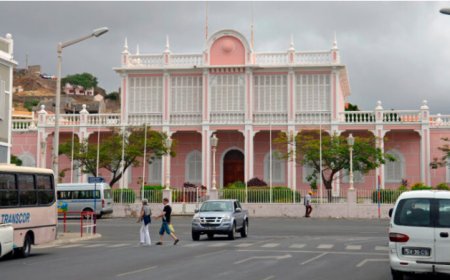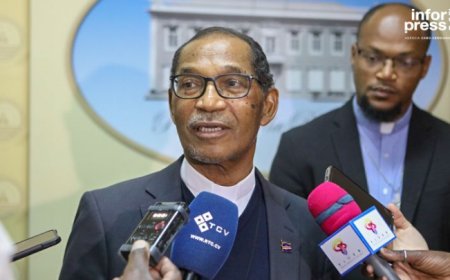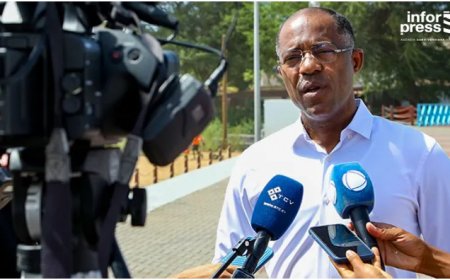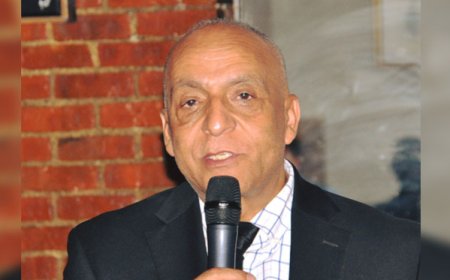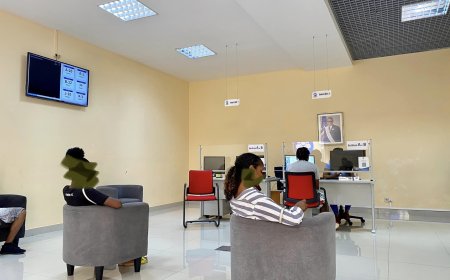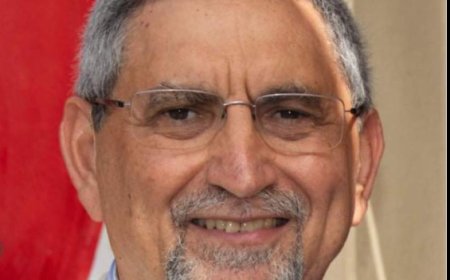TACV: 14 months lost - The appointment and fall of Pedro Barros exposes the strategic bankruptcy of the government..., once again !
Fourteen months after his appointment as Chairman of the Board of Directors of TACV, Pedro Barros, Don "Cacuto", is stepping down, leaving yet another trail of missed opportunities, worsening operations and financial strain. His entry was announced in June 2024 under the political patronage of the "powerful" MF-VPM (always him!) guaranteeing and highlighting the experience, talent and skills needed to lead the restructuring of TACV! The outcome confirms what we have all realized for some time: the problem is not just who occupies the post, it is the governance model that the government has imposed on the company and the sector: politicized, opaque, without accountability and alien to the technical discipline of air transport!
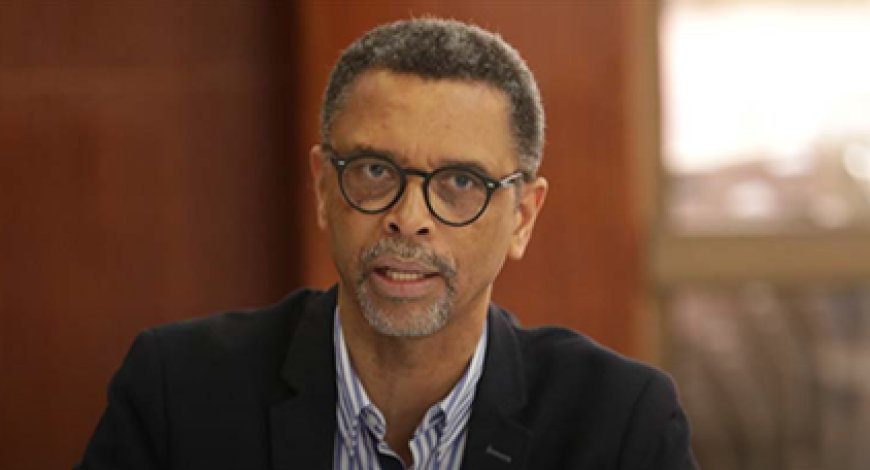
At the official presentation, the executive spoke and set clear objectives: regular, safe and affordable services; strengthening international connectivity; and an ecosystem conducive to efficiency. The expectations created( again!) were of rapid stabilization, recovery of lost certifications, resumption of strategic routes (USA and Brazil) and regular publication of performance metrics ... - None of this happened! Instead, what we saw was a cycle of empty announcements, labor conflicts and erratic decisions, in an institutional environment where the regulator lost authority and management became subordinate to political expediency, chaos silently consolidating!
Fourteen months later the commercial, social and operational balance sheet is extremely negative
The period of Don "Cacuto's" management was marked by systematic breakdowns, frequent cancellations, staff leaving, tension with pilots and crew and the inability to recover critical international authorizations/certificates. Promised routes were not opened, the intercontinental network did not improve as expected, and the domestic operation, although expanded, was not accompanied by minimum performance metrics (OTP, cancellations, RPK/ASK, CASK, yield, reliability). The absence of auditable data has turned the management of the renowned economist, MF-VPM's strong bet into yet another exercise in rhetoric, again!
The "marketing of numbers" and the void of metrics has come to command TACV's relationship with the market and taxpayers. The celebration of "4,000 flights" in the first half of the year illustrates the inversion of priorities: without distinguishing between own and subcontracted operations, domestic and international, commercial and non-commercial, and without revealing occupancy factor, flight hours per aircraft, utilization rate, miles flown, cargo transported or profitability per route, the number is irrelevant for B2B and taxpayer analysis... - It's statistics without strategy! In any carrier that claims to be modern and painfully supported by taxpayers, the quarterly publication of KPIs is a prerequisite for good governance: passengers per route, load factor per segment, RASK/CASK, OTP, cancellations, BRLF, EBITDA and tax exposure - Without this, the market and taxpayers are literally flying blind, and how can an MF-VPM go along with this?
Drifting and without any governance, capture and high fiscal risk, TACV has consolidated what technicians, analysts and citizens have long realized, except for Dr. Olavo Correia, MF-VPM: that TACV operates in a political-budgetary bubble of precarious leases, opaque contracts, loss of slots and certifications, low commercial elasticity and dependence on public guarantees; that the regulator (AAC) has lost effectiveness and autonomy; that the tutelage confuses sovereignty with protection of a bankrupt model; and the company has become a recurring fiscal risk. The rhetoric of the "goose that lays golden eggs", spouted in an unreasonable manner by Dr Pedro Barros Don "Cacuto" during the pilots' strike, clashed with reality: it is a drain on resources that destroys value and reputation, while low-cost operators expand the market at no cost to the treasury.
With an economic impact and crowding-out effect, TACV's fragility compresses the useful connectivity of the archipelago: tourists are confined to two destinations, logistics chains are not articulated, perishable cargo flows are not available, and pent-up demand distorts any reading of occupancy. It is undeniable that the crowding-out effect of the failure of government options is real: public resources that should ensure inter-island mobility, legal certainty and modernization of infrastructures are channelled to support a narrative, not a business case.
With Don "Cacuto" as yet another scapegoat (or is it "respiratory"?), a "culprit", many, the less attentive, must be asking why the management of Pedro Barros failed..., and of the previous ones+islandeses+Binter+SevenAir+BestFly ...?
Not because of a lack of individual will, I believe, but because of a governance context that makes any management unfeasible, where leadership and political vision are poor, objectives are changing, drift and strategic inconsistency prevail; the cult of the absence of metrics, political interference, labor conflicts without an economic framework, and a communication culture that permanently and intensely replaces accountability with slogans prevail to favor manipulation. The statement made by CA&Governo that the company would adopt measures to compete with players like easyJet and Transavia shows a gulf in knowledge of the game, the fleets, commercial technology, revenue management and reputation in confrontation!
And now, once again we're going to talk about a new start, very competent managers, with proven track records blah, blah, blah? Whoever they are, ask them:
1)An immediate independent audit of the accounts, contracts and certifications; 2) Quarterly publication of KPIs (RASK/CASK, OTP, cancellations, cargo, yield, BRLF, EBITDA); 3) Strategic repositioning with binding deadlines: decide there and definitively ( courage) between international, regional, inter-island/cargo carrier or orderly closure; 4) put up a governance firewall: a CA that excels in professionalism, truly independent and with an armored statutory mandate; 5) make there a real regulatory alignment with ICAO/IATA/EASA and swift revalidation of all the necessary certifications; 6) help in the de facto implementation of a real public policy focused on domestic connectivity and truly open competition/alliances in the international; 7) stop there this vertigo of new endorsements without verifiable targets and performance milestones that take our sleep away and drain resources that could be channeled to other sectors!
But it's clear that for this to happen there has to be a lot of political responsibility and a sense of State... - "Values" that it seems were in the floods that plunged São Vicente into pain and mourning!
The fall of Pedro Barros 14 months after his appointment (only he didn't know he was cannon fodder) is not an accident: it is the logical consequence of a "model", a government, a power and leadership designed to communicate, advertise, manipulate, fabricate dreams, but not to manage! The government is responsible for this cycle of failures, for replacing strategy with staging and for insisting on an institutional design that makes results impossible. Without truth, metrics and discipline, TACV will continue to be a "flying urn" that wastes resources and time. With technical leadership, transparency and tough choices, it is still possible to give Cape Verde back a mobility policy that serves the economy and not propaganda and illusionism!
Fidju de nos Cabo Verde de sperança pa Sempre



























